Psychological Science: Counseling Essay (Theory of Counseling)
Introduction, theory of counseling, counseling psychology, values in counseling.
Counselling generally refers to the provision of assistance or guidance that eventually helps solve personal, social or mental problems. A professional individual typically administers it. It usually takes a number of forms, including individual counselling, group counselling, and couples counselling. The goal of individual counselling is to help one make better decisions, improve one’s relationship with others, and generally help one understand oneself in order to be able to make healthy changes. However, group therapy helps an individual to comprehend their emotions and transform problem behaviours with the help of others (Seikkula, 2019). This essay about counseling can help reveal and understand the prospects for using various techniques in the process of helping clients.
Counselling may be beneficial in a number of ways. It can make one have a better understanding of things that help in getting new skills to manage themselves better. Through the help of the counsellor, individuals can respond to problems from different perspectives. Sharing thoughts can exceptionally be helpful in changing one’s life, and that is what counselling is all about. There are important aspects of counselling that make its usage effective. One of these aspects is confidentiality; this means that a counsellor is, by ethics, required to treat all the information that a client shares as confidential material (Avasthi et al., 2022). Another important aspect is the counselling process; this depends on the individual counsellor and client and the urgency of the issue in question. However, the general process to be followed includes collecting background information, identifying key issues, case development, setting goals for therapy, implementation of intervention and evaluation. An important research question of this essay is, “How will counseling help you get through with your problems?”
Theories of counselling vary and mainly depend on the views of different writers. The ones reviewed include client-centred, holistic health, learned optimism, cognitive behavioural, solution-focused and existential. In client-centred counselling, the client is motivated to discover things and develop as a result of the guidance and climate that the counsellor provides. In this type of counselling, the standard features include active listening, acceptance, truthfulness and empathy (Bayliss-Conway et al., 2021). Holistic health, on the other hand, stresses the importance of physical well and emotional, social, vocational and spiritual needs. If these are ignored, then individuals will easily succumb to stress, which can affect their well-being.
There is a type of counselling practice that allows for interaction between the client and the counsellor. This method makes it possible to discuss successful moments that have occurred in the past or in the present (Bayliss-Conway et al., 2021). This form of counselling is referred to as learned optimism counselling. This also allows them to address the problems that should be anticipated in the present and the future. It involves having a positive mind and usually directs an individual on how things can turn out.
Cognitive behavioural therapy, also referred to as the ABC method, can be described as any form of therapy that is based on the belief in one’s thoughts and that is typically directly connected to the way one feels. In this type of scenario, there usually is what is referred to as the activating event, where the client draws their interpretations. This makes it possible for clients to believe in the ideas conveyed by the consultant (Reid et al., 2021). This typically leads to different consequences concerning the outcome of the event. Thus, this form of therapy helps clients identify distorted thinking that causes emotional problems and helps solve them.
Solution-focused therapy typically focuses on the outcomes; this means that the primary goal is focused towards achieving what the client wants through the use of therapy rather than the cause that made them seek therapy. This kind of approach focuses on the present and future, and the client is customarily advised to focus on the future and how it has changed (De Shazer et al., 2021). The existential approach is simply based on the presence of individuals in a therapy session and the reason why they are there in the first place. This means that if a client knows the reason why he/she is in therapy, then it will enable them to face the challenges that come along swiftly.
Counselling and psychology are interrelated; the use of psychological principles to overcome different problems is facilitated through counselling. Therefore, counselling psychology is a specialty that brings together research and applied work to achieve broad areas. The counselling process, outcome, supervision, and training are critical components in establishing preventive recovery pathways (DeBlaere et al., 2019). Some unique features of counselling psychology include the focus on people, environment interaction and impact personalities. Psychologists get the answers to people’s behaviours through counselling.
Psychologists are generally interested in finding answers through the counselling process and outcomes, in which, through the process, they get to ask questions, and the outcome will determine whether the process was effective and successful. In this process, the psychologist uses specific techniques. One of the main and most common ones can be called client and cultural variables (DeBlaere et al., 2019). Therapist variables and mechanisms of change are also included.
Therapist variables include the traits of a counsellor, theoretical orientation and behaviour. Following clearly established models of therapeutic intervention can have significant positive effects on patients (DeBlaere et al., 2019). Client variables, on the other hand, include certain things, such as seeking support from other people and further attachment to them (DeBlaere et al., 2019). This has been very useful in counselling. Stigma from mental illness motivates people to accept the fact that they have problems and make them seek help. Self-stigma is a condition that affects the individual’s perspective towards counselling, and this causes such an individual to require intervention.
Attachment style can be viewed in different ways. Those clients with avoidant styles may believe that counselling is not able to have any positive effect on their condition (Moradi et al., 2023). However, securely attached ones react differently. They perceive counselling to be incredibly beneficial. These kinds of individuals seek such professional help. Anxious attachment is said to perceive much importance as well as risks to counselling; thus, providing education about expectations of counselling can change clients’ attitudes tremendously.
Counselling relationship, as referred to in counselling psychology, refers to the feeling that a client and a therapist have towards each other and the way in which they are expressed. This kind of relationship may fall into three categories: countertransference, working alliance and personal relationship (Moradi et al., 2023). The secure base hypothesis is a theory concerning the function of counselling and is typically related to attachment theory; this enables the client to have a reference point.
Counselling psychologists use different approaches. They incorporate things such as cultural variables in counselling practices. They relate such aspects with the processes and results arrived at during counselling. Recent studies show that black clients are at risk of racial discrimination from white counsellors. Counsellors must have experience working with a variety of people in order to effectively deal with their characteristics and personal problems (Moradi et al., 2023). Counselling outcomes typically look at different symptoms, such as specific disorders and behaviour changes. Positive outcomes like quality of life form a basis of life-satisfaction measure reports.
One of the various quantitative methods includes conducting correlation studies. This is applied in the counselling course and during clinical trials. They also apply during the actual process of counselling and the studies on the processes of counselling and the outcomes. On the other hand, qualitative methods involve conducting, translating, and coding therapy sessions. In practical terms, one sees that counselling can delve into aspects such as emotion, personality and interpersonal relationships (DeBlaere et al., 2019). It, thus, can relate to different kinds of settings in a population, like community mental health settings and in-patient clients on drug abuse. In a community mental health setting, there are different individuals who suffer from all sorts of mental breakdown illnesses.
Counselling helps in making them understand the core reason behind their mental breakdown and possibly helps them deal with the fears that relate to it; the end results depend typically on the attitude of patients and their response to therapy during these counselling sessions. Different settings, thus, have different counselling approaches and also depend on the technicality of the given situation. Client variables normally help a lot during some sessions as they represent a deeper understanding of the current situation (DeBlaere et al., 2019). An in-patient on drug abuse, for example, may not derive much benefit from counselling if he does not accept that he/she has a problem, the problem has had a significant effect on his/her life, and finally, the problem can be fixed.
It is important to note, therefore, that counselling can only work where a client is willing to participate; commonly, psychology can be used to gain this will. Counselling, in essence, is a profession that is highly dependent on the needs of clients and their personalities. The counsellor’s approach should be unique from session to session and depend on how the client responds to the therapist’s questions and actions (DeBlaere et al., 2019). On other occasions, counsellors influence decision-making in individuals. This way, they influence the kind of decisions the clients make. Some of their decisions may change their lives completely.
Values in counselling introduce us to the various theoretical perspectives of psychology that can be used in counselling. The question of this study is to find out how counselling will help you get through your problems. There are various theoretical perspectives in psychology that are commonly referred to as paradigms. They include behavioural, biological, cognitive, humanistic, social, Freudian, and developmental. Focusing on the developmental perspective, its information processing, and developmental approaches as a discipline brings us to the approaches that can be applied in counselling (DeBlaere et al., 2019). There are three basic approaches currently under debate. They include information processing, life span development, and developmental approaches.
The approach under investigation was based on the concept of irrational beliefs, concepts of feelings and behaviour. The counsellors may incorporate therapy in the session and combine it with behaviour. This way, the counsellor personalizes the therapy session. How an individual feels and reacts to such feelings is the first step in knowing that something is not correct, and that can further lead to reasoning and, thus, the decision that motivates them to seek counselling. With these considerations, counselling appears as a link between the individual’s way of thinking and his/her behaviour. Feelings of sadness or anxiety can significantly predetermine a person’s behaviour in public life and their reactions to any aspects of society (Chita-Tegmark & Scheutz, 2021). Behaviour is usually motivated to result in a change in the human mind. When one’s response is based on false emotions, then negative and possibly harmful results will be achieved.
Negative behaviour may sometimes be the reason that individuals or groups in a therapy session realize the need for change. Proper guidance is one of the critical aspects that must be complemented by the ability to identify the client’s emotional state and behavioural patterns (Chita-Tegmark & Scheutz, 2021). This may lead towards finding out what the problem is with a particular individual or a group or may enable proper interpretation of events that led to therapy.
When a counsellor discovers the behaviour in an individual is no longer functioning, it may be a good indicator for assessing the things that the individual now believes in and thus, emotional health can be regained through removing the negative thoughts and distortions and trying to give them emotional and personality balance. Behavioural response as a perspective in counselling can provide a significant impact on the change process of an individual or a group. A behavioural perspective in interactions with clients during consultations can influence the achievement of trusting relationships between people (Seikkula, 2019). Usually, clients who decide to go for counselling have different problems they are aware of but need the help of a therapist to be able to identify the core reason as to why they cannot solve it.
Counselling can show that the initial stages of the client-counsellor relationship can be a bit difficult, but as the clients’ emotions and behaviour exhibit themselves, the counsellor will gain insight that will enable him/her to understand the client more and, thus, improve their relationship. Thus, it is crucial for the therapist to identify specific behavioural traits that are characteristic of the client and on which work can be concentrated (De Shazer et al., 2021). The positive ones help in improving the client’s self-esteem in the time when he/she seems to be having a mental breakdown that is related to the problem he/she is facing.
Exploring this perspective enhances the buildup of a therapy case before and in the course of counselling. The individual most often has no knowledge of the kind of issues that need to be addressed if he/she goes to counselling, but he/she knows that something is not right in the environment he lives in or that he/she has a problem that needs to be addressed. Distinguishing between the types of emotions experienced by the client is critical for the therapist in the initial stages as this will lay the foundation for further cooperation (Avasthi et al., 2022). In later stages of counselling and as the counsellor and the client relationship is built up, the counsellor may uncover the thought that leads to disruptive behaviour and feelings. It is the counsellor’s role in this perspective to identify and respond to them so as to restore an individual functional system.
Counselling is meant to consider the entire characteristic that an individual exhibits when he/she enters counselling; a counsellor, through knowledge of these traits like behaviour and feeling, will be challenged to uncover the client’s beliefs that are the cause of their actions. This can help create a more personalized process aimed at demonstrating people’s focus on their thoughts and ideas (Reid et al., 2021). The kind of behaviour that an individual exhibits during counselling sessions will either work positively for the client or not. If a client exhibits behaviour aimed at changing the painful experiences and helps him or them work on his/her feelings like anger, then this will be of great significance in making this individual a healthy and positive person.
In essence, counselling will make the individual understand and appreciate the reward that he/she achieved because of counselling. There are different approaches employed in counselling psychology. They differ in terms of therapy and the basic concepts. One of them is the behavioural perspective. This is comparable to the rest but also differs in various aspects. A comparison between the behavioural and cognitive perspectives revealed a key difference in the approach to problem-solving through psychoanalytic theory and practice methods, respectively (DeBlaere et al., 2019). The Freudian perspective works towards changing an individual’s personality and character through using childhood experiences. Cognitive and behavioural perspectives usually produce a change in a group or individual in a short period.
Theoretical perspectives differ in scope and applicability. Some can be used to solve crime cases as well as real-life dilemmas. There are various theories and approaches that can be combined with the perspectives discussed to help consultants gain a broader perspective and understanding of clients’ understandings (DeBlaere et al., 2019). In this way, a conducive and harmonious counselling environment can be created that will enhance the process to achieve results faster. It will also allow the client to recognize the impact that counselling has had on their life.
A compiled essay about counselling has shown it is quite a broad and diverse subject; it shares most subject matters, especially concerning psychology as a discipline in terms of emotion, behavior, personality, attention and perception. It usually provides an opportunity for individuals to express themselves where no one seems to agree with what they have to say; this is the basis and direction in which most individuals’ dysfunctional problems are solved today. Counselling has had tremendous results over the past in solving cases, and, as an expert, counselling psychology is one of the most effective tools in handling mental breakdown; the results of its usage in the modern world have become very effective over the years.
The counselling essay format provided a comprehensive review of the main aspects of this process and the key elements necessary for success. The study of counselling and, in broad terms, psychology have also been criticized by different philosophers of science; some say it is a soft science lacking the fundamental concepts and effectiveness like mature sciences such as physics and chemistry. Some say that it is not objective. They argue that the phenomena used by psychologists, like personality and emotion, cannot be measured directly and that they are often subjective in nature. The critical thing to note is that its usage in real-life situations has proven to be very successful.
Avasthi, A., Grover, S., & Nischal, A. (2022). Ethical and legal issues in psychotherapy. Indian Journal of Psychiatry, 64 (Suppl 1), 1-27. https://www.ncbi.nlm.nih.gov/pmc/articles/PMC9122134/
Bayliss-Conway, C., Price, S., Murphy, D., & Joseph, S. (2021). Client-centred therapeutic relationship conditions and authenticity: a prospective study. B ritish Journal of Guidance & Counselling, 49 (5), 637-647. https://doi.org/10.1080/03069885.2020.1755952
Chita-Tegmark, M., & Scheutz, M. (2021). Assistive robots for the social management of health: a framework for robot design and human–robot interaction research. International Journal of Social Robotics, 13 (2), 197-217. https://doi.org/10.1007/s12369-020-00634-z
De Shazer, S., Dolan, Y., Korman, H., Trepper, T., McCollum, E., & Berg, I. K. (2021). More than miracles: The state of the art of solution-focused brief therapy . Routledge.
DeBlaere, C., Singh, A. A., Wilcox, M. M., Cokley, K. O., Delgado-Romero, E. A., Scalise, D. A., & Shawahin, L. (2019). Social justice in counseling psychology: Then, now, and looking forward. The Counseling Psychologist, 47 (6), 938-962. https://doi.org/10.1177/0011000019893283
Moradi, B., Brewster, M. E., Grzanka, P. R., & Miller, M. J. (2023). The hidden curriculum of academic writing: Toward demystifying manuscript preparation in counseling psychology. Journal of Counseling Psychology, 70 (2), 119-132. https://psycnet.apa.org/doi/10.1037/cou0000650
Reid, J. E., Laws, K. R., Drummond, L., Vismara, M., Grancini, B., Mpavaenda, D., & Fineberg, N. A. (2021). Cognitive behavioural therapy with exposure and response prevention in the treatment of obsessive-compulsive disorder: A systematic review and meta-analysis of randomised controlled trials. Comprehensive Psychiatry, 106 , 1-13. https://doi.org/10.1016/j.comppsych.2021.152223
Seikkula, J. (2019). Psychosis is not illness but a survival strategy in severe stress: a proposal for an addition to a phenomenological point of view. Psychopathology, 52 (2), 143-150. https://doi.org/10.1159/000500162
- Counseling and Teaching: Comparative Discussion
- Exploring Human Nature, Determinism, and the Counselling Process
- First Counselling Session: On Becoming a “Skilled Helper”
- The Status of the Scarf Model Within UAE: Challenges and Benefits
- Issues in Lifespan Development
- Personality Formation
- Modern Thinking of Self Concept
- Concept of Self, Self-Esteem, and Behavior
- Chicago (A-D)
- Chicago (N-B)
IvyPanda. (2019, May 28). Psychological Science: Counseling Essay (Theory of Counseling). https://ivypanda.com/essays/counseling-essay/
"Psychological Science: Counseling Essay (Theory of Counseling)." IvyPanda , 28 May 2019, ivypanda.com/essays/counseling-essay/.
IvyPanda . (2019) 'Psychological Science: Counseling Essay (Theory of Counseling)'. 28 May.
IvyPanda . 2019. "Psychological Science: Counseling Essay (Theory of Counseling)." May 28, 2019. https://ivypanda.com/essays/counseling-essay/.
1. IvyPanda . "Psychological Science: Counseling Essay (Theory of Counseling)." May 28, 2019. https://ivypanda.com/essays/counseling-essay/.
Bibliography
IvyPanda . "Psychological Science: Counseling Essay (Theory of Counseling)." May 28, 2019. https://ivypanda.com/essays/counseling-essay/.


Essay and dissertation writing skills
Planning your essay
Writing your introduction
Structuring your essay
- Writing essays in science subjects
- Brief video guides to support essay planning and writing
- Writing extended essays and dissertations
- Planning your dissertation writing time
Structuring your dissertation
- Top tips for writing longer pieces of work
Advice on planning and writing essays and dissertations
University essays differ from school essays in that they are less concerned with what you know and more concerned with how you construct an argument to answer the question. This means that the starting point for writing a strong essay is to first unpick the question and to then use this to plan your essay before you start putting pen to paper (or finger to keyboard).
A really good starting point for you are these short, downloadable Tips for Successful Essay Writing and Answering the Question resources. Both resources will help you to plan your essay, as well as giving you guidance on how to distinguish between different sorts of essay questions.
You may find it helpful to watch this seven-minute video on six tips for essay writing which outlines how to interpret essay questions, as well as giving advice on planning and structuring your writing:
Different disciplines will have different expectations for essay structure and you should always refer to your Faculty or Department student handbook or course Canvas site for more specific guidance.
However, broadly speaking, all essays share the following features:
Essays need an introduction to establish and focus the parameters of the discussion that will follow. You may find it helpful to divide the introduction into areas to demonstrate your breadth and engagement with the essay question. You might define specific terms in the introduction to show your engagement with the essay question; for example, ‘This is a large topic which has been variously discussed by many scientists and commentators. The principal tension is between the views of X and Y who define the main issues as…’ Breadth might be demonstrated by showing the range of viewpoints from which the essay question could be considered; for example, ‘A variety of factors including economic, social and political, influence A and B. This essay will focus on the social and economic aspects, with particular emphasis on…..’
Watch this two-minute video to learn more about how to plan and structure an introduction:
The main body of the essay should elaborate on the issues raised in the introduction and develop an argument(s) that answers the question. It should consist of a number of self-contained paragraphs each of which makes a specific point and provides some form of evidence to support the argument being made. Remember that a clear argument requires that each paragraph explicitly relates back to the essay question or the developing argument.
- Conclusion: An essay should end with a conclusion that reiterates the argument in light of the evidence you have provided; you shouldn’t use the conclusion to introduce new information.
- References: You need to include references to the materials you’ve used to write your essay. These might be in the form of footnotes, in-text citations, or a bibliography at the end. Different systems exist for citing references and different disciplines will use various approaches to citation. Ask your tutor which method(s) you should be using for your essay and also consult your Department or Faculty webpages for specific guidance in your discipline.
Essay writing in science subjects
If you are writing an essay for a science subject you may need to consider additional areas, such as how to present data or diagrams. This five-minute video gives you some advice on how to approach your reading list, planning which information to include in your answer and how to write for your scientific audience – the video is available here:
A PDF providing further guidance on writing science essays for tutorials is available to download.
Short videos to support your essay writing skills
There are many other resources at Oxford that can help support your essay writing skills and if you are short on time, the Oxford Study Skills Centre has produced a number of short (2-minute) videos covering different aspects of essay writing, including:
- Approaching different types of essay questions
- Structuring your essay
- Writing an introduction
- Making use of evidence in your essay writing
- Writing your conclusion
Extended essays and dissertations
Longer pieces of writing like extended essays and dissertations may seem like quite a challenge from your regular essay writing. The important point is to start with a plan and to focus on what the question is asking. A PDF providing further guidance on planning Humanities and Social Science dissertations is available to download.
Planning your time effectively
Try not to leave the writing until close to your deadline, instead start as soon as you have some ideas to put down onto paper. Your early drafts may never end up in the final work, but the work of committing your ideas to paper helps to formulate not only your ideas, but the method of structuring your writing to read well and conclude firmly.
Although many students and tutors will say that the introduction is often written last, it is a good idea to begin to think about what will go into it early on. For example, the first draft of your introduction should set out your argument, the information you have, and your methods, and it should give a structure to the chapters and sections you will write. Your introduction will probably change as time goes on but it will stand as a guide to your entire extended essay or dissertation and it will help you to keep focused.
The structure of extended essays or dissertations will vary depending on the question and discipline, but may include some or all of the following:
- The background information to - and context for - your research. This often takes the form of a literature review.
- Explanation of the focus of your work.
- Explanation of the value of this work to scholarship on the topic.
- List of the aims and objectives of the work and also the issues which will not be covered because they are outside its scope.
The main body of your extended essay or dissertation will probably include your methodology, the results of research, and your argument(s) based on your findings.
The conclusion is to summarise the value your research has added to the topic, and any further lines of research you would undertake given more time or resources.
Tips on writing longer pieces of work
Approaching each chapter of a dissertation as a shorter essay can make the task of writing a dissertation seem less overwhelming. Each chapter will have an introduction, a main body where the argument is developed and substantiated with evidence, and a conclusion to tie things together. Unlike in a regular essay, chapter conclusions may also introduce the chapter that will follow, indicating how the chapters are connected to one another and how the argument will develop through your dissertation.
For further guidance, watch this two-minute video on writing longer pieces of work .
Systems & Services
Access Student Self Service
- Student Self Service
- Self Service guide
- Registration guide
- Libraries search
- OXCORT - see TMS
- GSS - see Student Self Service
- The Careers Service
- Oxford University Sport
- Online store
- Gardens, Libraries and Museums
- Researchers Skills Toolkit
- LinkedIn Learning (formerly Lynda.com)
- Access Guide
- Lecture Lists
- Exam Papers (OXAM)
- Oxford Talks
Latest student news
CAN'T FIND WHAT YOU'RE LOOKING FOR?
Try our extensive database of FAQs or submit your own question...
Ask a question
How to Write a College Application Essay
Find the right college for you..
Your essay reveals something important about you that your grades and test scores can't─your personality. It can give admissions officers a sense of who you are and showcase your writing ability. Here are some things that admissions officers look for in a personal essay for college.
1. Open Strong.
Knowing how to start a college essay can create a strong opening paragraph that immediately captures the reader’s interest. You want to make the admissions officer reading your essay curious about what you say next.
2. Show You Can Write.
Colleges want to see that you have a command of the basics of good writing, which is a key component of success in college.
3. Answer the Prompt.
Admissions officers also want to see that the student can give a direct answer while sticking to a comprehensive narrative. When writing college essays, consider the point you want to make and develop a fleshed-out response that fits the prompt. Avoid force-fitting prewritten pieces. Approach every personal essay prompt as if it's your first.
4. Stick to Your Style.
Writing college essays isn't about using flowery or verbose prose. Avoid leaning too heavily on the thesaurus to sound impressive. Choose a natural writing style that’s appropriate for the subject matter.
Also, avoid stressing about trying to write what you think colleges want to see. Learning how to draft a good essay for college is about showcasing who you are. Stay true to your voice. Keep in mind that authenticity is more important than anything else.
5. Proofread.
Correct grammar, punctuation, and spelling are essential. Proofread several times after you've finished. Then ask a teacher, parent, or college English major to give it a quick read as well.
6. Keep Track of Length.
Finally, admissions officers value succinctness. Remember to pay attention to the recommended essay length or word count.
Bonus Tips and College Essay Writing Help
For more on how to write a college essay, check out these Tips for Writing Your College Admissions Essay .
What is the college application essay?
A personal essay for college applications is an opportunity for admission admissions panels to get more insight into who you are and what you have to offer. It's often the most personal component of the application, going beyond grades and standardized test scores. Essays usually have open-ended prompts, allowing you to flex your writing skills and make a personal statement.
Does my college application essay really matter?
Learning how to write a successful essay for college is crucial. This essay's exact weight on your chances of acceptance varies from one school to the next. But it's an element of your application that all admissions teams consider. Your essay could be the thing that gets you off a waiting list or gives you a competitive edge over other applicants.
What are colleges looking for in my application essay?
Knowing what to include in a college essay is half the battle. Admissions teams look for many things, but the most influential are authenticity, writing ability, character details, and positive traits. The purpose of the essay is to shed light on your background and gain perspective on your real-world experiences.
When should I start writing my college essay?
Because you'll want to tailor each application to each school, expect to write multiple personal essays. Advisers typically recommend starting these pieces during the summer before your senior year of high school. This will give you ample time to concentrate on writing a college essay before you're hit with schoolwork.
What can I do to write an effective college essay if I'm not a strong writer?
Good writing skills matter, but the best college essay is about the quality of your response. Authentic stories in a natural voice have impact. The story you want to tell about yourself will work better for you if it’s told in language that’s not overly sophisticated. Work with a writing coach for help with the academic aspects. Make responding with substance a priority.
How can I write my college essay if I have no monumental experiences?
You don't need life-changing moments to impress an admissions panel. Think about your personal experiences. Describe moments that left a lasting impact. The important thing is to have a fleshed-out narrative that provides insight into your life and way of thinking. Some of the best essays revolve around meaningful moments rather than flashy ones.
How should I start brainstorming topics for my college essay?
Most colleges provide open-ended prompts. Using the topic as inspiration, think about critical milestones or essential lessons you learned during your academic career. Tell stories about real-life experiences that have shaped the person you are. Write them down to brainstorm ideas. Choose stories that highlight your best traits.
What is a good list of essay topics to start with? What essay topics should I avoid?
Good topics when writing college essays include personal achievements, meaningful lessons, life-changing challenges, and situations that fostered personal growth. It's best to avoid anything too intimate or controversial. You want to open up, but it's not a good idea to go overboard or alienate members of the admissions panel.
What format should I use for my college essay?
Read the prompt and essay instructions thoroughly to learn how to start off a college essay. Some colleges provide guidance about formatting. If not, the best course of action is to stick with a college standard like the MLA format.
How long should my essay be?
The average length of a personal essay for college is 400─600 words. Always read the prompt. Follow the instructions provided in the application.
Who should I ask to review my college essay?
Turn to your school counselor for review. They understand what college admissions panels are looking for, and they can provide valuable insight into your piece's quality. You can also reach out to English teachers and other educators for proofreading.
Related Articles
- Tips for Reading an Assignment Prompt
- Asking Analytical Questions
- Introductions
- What Do Introductions Across the Disciplines Have in Common?
- Anatomy of a Body Paragraph
- Transitions
- Tips for Organizing Your Essay
- Counterargument
- Conclusions
- Strategies for Essay Writing: Downloadable PDFs
- Brief Guides to Writing in the Disciplines
If you're seeing this message, it means we're having trouble loading external resources on our website.
If you're behind a web filter, please make sure that the domains *.kastatic.org and *.kasandbox.org are unblocked.
To log in and use all the features of Khan Academy, please enable JavaScript in your browser.
College admissions
Course: college admissions > unit 4.
- Writing a strong college admissions essay
- Avoiding common admissions essay mistakes
- Brainstorming tips for your college essay
- How formal should the tone of your college essay be?
- Taking your college essay to the next level
- Sample essay 1 with admissions feedback
- Sample essay 2 with admissions feedback
- Student story: Admissions essay about a formative experience
- Student story: Admissions essay about personal identity
- Student story: Admissions essay about community impact
- Student story: Admissions essay about a past mistake
- Student story: Admissions essay about a meaningful poem
Writing tips and techniques for your college essay
Pose a question the reader wants answered
Don't focus exclusively on the past, experiment with the unexpected, don't summarize, want to join the conversation.
- Upvote Button navigates to signup page
- Downvote Button navigates to signup page
- Flag Button navigates to signup page


- Campus Safety
- (866) 825-5426
Why Is Counseling Important in Schools?
Counseling can be very important in many schools—it can help provide important information and perspective to students who might not be able to get it otherwise. Students can go to professional counselors to seek advice. The goal of every session with the school counselor is to help student’s thrive and recognize their strengths, as well as improve their interpersonal relationships. 1
Help your local school
The Counselor’s Role
One of the major components of a counselor's role is accountability. Why are school counselors important? Professional school counselors are often responsible for analyzing data on their own effectiveness and adjusting their techniques to maximize their value to students. As a result, the role of the counselor can be ever-changing and depends on a variety of factors at work within the school. 2
Addressing the Challenges of Bullying in Schools
One of the most important recent changes to the school counselor’s role is dealing with new forms of bullying, especially cyberbullying that often has an effect on mental health conditions. Students of younger and younger ages are using technology for communication and socializing, and by doing so, may be putting themselves at risk for a type of bullying that is difficult to deal with for both student and mental health counselor. So why is counseling important? A school counselor, or any licensed professional counselor, must always work to be aware of new social issues that are constantly arising between students and provide a counseling session or therapy when a mental health issue surfaces.
Nurturing Emotional Well-being and Social Development
In recent years, the scope of school counseling services have grown to emphasize social-emotional support. This shift reflects a deeper understanding that students' emotional and social well-being is as crucial as their academic performance. School guidance counselors teach good social skills, and provide clinical mental health counseling and behavioral interventions. They ensure that their school setting is a safe space for all learners.
Fostering Academic Performance and Equity
School counselors matter when it comes to academic success particularly in marginalized communities. Research shows that comprehensive counseling programs are connected to student achievement, especially in schools serving high-poverty areas. Professional school counseling isn't only about giving career guidance and emotional support, but also helping students overcome personal and systemic barriers that hinder their academic achievement.
Data-Driven Advocacy
A modern guidance counselor adopts a data-driven approach to advocacy. The school psychologist analyzes factors affecting student success, such as socioeconomic conditions, family dynamics, and learning differences. By leveraging this data, counselors can develop targeted strategies and interventions that can make a meaningful impact on students' academic and personal lives.
Student Needs and Accessibility
Counseling in schools should also be readily available to offer guidance to students at crucial turning points in their lives. Whether these professional counselors have a masters or a doctorate in school psychology , work in elementary, middle, or high schools, they should strive to be there for students who are going through a difficult time, struggling with mental illness, or just need advice and support. A few words from a helpful counselor can profoundly impact a student’s life by improving their outlook on school, family, and the future, and this, along with the responsibilities outlined above, form the key tenets of a modern school counselor’s role.
Despite the recognized importance of counseling in schools, many institutions face significant barriers in providing comprehensive school counseling services. These challenges often stem from limited funding, staffing shortages, and infrastructural constraints. This disparity in resources means that not all students have equal access to the support they need. Putting strong emphasis on the importance of counseling in schools can drive policy changes and resource allocation to bridge this gap.
Become a School Counselor
Effects of Quality Counseling in Schools
One of the biggest benefits of guidance and counseling in schools from a well-trained and effective school counselor is in the way they may be able to help prepare students for academic, career, and social challenges through relating their academic success with the potential success of their future lives.
Student achievement significantly affects professional development and so they should strive to:
- surpass a mental health problem, help motivate students to learn and explore the world around them to help figure out what they want to do with their lives
- encourage their students to have these types of conversations with their parents and peers, as well as being a sympathetic ear for the same students to come to
- have the ability to facilitate more intimate or group counselling sessions as well.
School counselors may also:
- provide support to teachers by serving an important part of the complete team that addresses the educational goals and needs of their students.
- help plan classroom and group activities that meet the students’ needs.
Counselors gather and share resources with teachers to help the staff develop their skills in classroom management and teaching effectiveness. They also may be able to help observe students in the classroom or playground and provide teachers assistance with their roles as guides.
Other than mental health and counseling services for student support, professional school counselors can be an integral part of school administration. They initiate counseling programs. They ensure that the comprehensive school counseling program and academic mission are in line and promote student success. Counselors also quite often develop a system to manage the program and help the administration use counselors effectively to augment student development and learning. Additionally, they provide useful data from the comprehensive school counseling program for funding and grant application purposes. 3
A good school counselor can and will help the school run smoothly and effectively, but with the light and distanced touch that can often lead others to wonder what effect they have even had on their education, if any. And, like in many professions, while the accolade of one’s work may, sadly, not be there, it does not mean that there was no effect.
If school counseling or the counseling profession seems like it could be the right future career for you, look into the School Counseling with Pupil Personnel Services (PPS) Credential , offered both with and without a Master’s degree, at the California School of Education at Alliant International University. To learn more, contact an Alliant Admission Counselor today at 1-866-825-5426.
Apply Today
1 “The California Standards - Schoolcounselor-Ca.org,” The California Standards for the School Counseling Profession , accessed November 3, 2021, https://www.schoolcounselor-ca.org/files/CSSCP%20-%20Electronic%20Versi… .
2 “The Role of the School Counselor,” The Role of the School Counselor , accessed November 3, 2021, https://www.schoolcounselor.org/getmedia/ee8b2e1b-d021-4575-982c-c84402…
3 “School Counselor Roles & Ratios,” School Counselor Roles & Ratios - American School Counselor Association (ASCA), accessed November 3, 2021, https://www.schoolcounselor.org/About-School-Counseling/School-Counselo… .
- “The California Standards - Schoolcounselor-Ca.org.” The California Standards for the School Counseling Profession . Accessed November 3, 2021. https://www.schoolcounselor-ca.org/files/CSSCP%20-%20Electronic%20Versi… ;
- “The Role of the School Counselor.” The Role of the School Counselor . Accessed November 3, 2021. https://www.schoolcounselor.org/getmedia/ee8b2e1b-d021-4575-982c-c84402… ;
- “School Counselor Roles & Ratios.” School Counselor Roles & Ratios - American School Counselor Association (ASCA). Accessed November 3, 2021. https://www.schoolcounselor.org/About-School-Counseling/School-Counselo… .

Kristy Pruitt
Dean, California School of Education
Dean of the California School of Education for Alliant International University in San Diego, California. In addition to her leadership...
Other Categories
University announcements, featured news, nursing and health sciences, start on your path to succeed on purpose, request information.
- 1 Current Select Interests
- 2 Provide Information
You might also like
The privilege of helping people learn english.
Dr. Peter Byun has a passion for teaching and sees his students as future leaders. “When you teach ESL learners, don’t think of it...
Testing their independence and challenging ideas
Why Dr. Tanya MacMartin loves teaching middle school kids. “I try to encourage our candidates to see that there is beauty in every...
How to Become a High School Teacher in California
Flip through your fondest memories and you may come across a recollection of a high school teacher who made a substantial impact...

Basic essay structure

Improve your writing
Organise your essays to demonstrate your knowledge, show your research and support your arguments
Essays are usually written in continuous, flowing, paragraphed text and don’t use section headings. This may seem unstructured at first, but good essays are carefully structured.
How your assignment content is structured is your choice. Use the basic pattern below to get started.
Essay structure
An essay consists of three basic parts:, introduction.
The essay itself usually has no section headings. Only the title page, author declaration and reference list are written as headings, along with, for example, appendices. Check any task instructions, and your course or unit handbook, for further details.
Content in assignment introductions can vary widely. In some disciplines you may need to provide a full background and context, whereas other essays may need only a little context, and others may need none.
An introduction to an essay usually has three primary purposes:
- To set the scene
- To tell readers what is important, and why
- To tell the reader what the essay is going to do (signposting)
A standard introduction includes the following five elements:
- A statement that sets out the topic and engages the reader.
- The background and context of the topic.
- Any important definitions, integrated into your text as appropriate.
- An outline of the key points, topic, issues, evidence, ideas, arguments, models, theories, or other information, as appropriate. This may include distinctions or contrasts between different ideas or evidence.
- A final sentence or two which tells the reader your focal points and aims.
You should aim to restrict your introduction to information needed for the topic and only include background and contextual information which helps the reader understand it, or sets the scene for your chosen focal points.
In most essays you will have a considerable range of options for your focus. You will be expected to demonstrate your ability to select the most relevant content to address your focal points.
There are some exceptions. For example, if an assignment brief specifically directs the essay focus or requires you to write broadly about a topic. These are relatively rare or are discipline-specific so you should check your task instructions and discipline and subject area conventions.
Below are examples of an opening statement, a summary of the selected content, and a statement at the end of the introduction which tells the reader what the essay will focus on and how it will be addressed. We've use a fictional essay.
The title of our essay is: 'Cats are better than dogs. Discuss.'
To submit this essay you also would need to add citations as appropriate.
Example of opening statements:
People have shared their lives with cats and dogs for millenia. Which is better depends partly on each animal’s characteristics and partly on the owner’s preferences.
Here is a summary of five specific topics selected for the essay, which would be covered in a little more detail in the introduction:
- In ancient Egypt, cats were treated as sacred and were pampered companions.
- Dogs have for centuries been used for hunting and to guard property. There are many types of working dog, and both dogs and cats are now kept purely as pets.
- They are very different animals, with different care needs, traits and abilities.
- It is a common perception that people are either “cat-lovers” or “dog-lovers”.
- It is a common perception that people tend to have preferences for one, and negative beliefs about and attitudes towards, the other.
Example of closing statements at the end of the introduction:
This essay will examine both cats’ and dogs’ behaviour and abilities, the benefits of keeping them as pets, and whether people’s perceptions of their nature matches current knowledge and understanding.
Main body: paragraphs
The body of the essay should be organised into paragraphs. Each paragraph should deal with a different aspect of the issue, but they should also link in some way to those that precede and follow it. This is not an easy thing to get right, even for experienced writers, partly because there are many ways to successfully structure and use paragraphs. There is no perfect paragraph template.
The theme or topic statement
The first sentence, or sometimes two, tells the reader what the paragraph is going to cover. It may either:
- Begin a new point or topic, or
- Follow on from the previous paragraph, but with a different focus or go into more-specific detail. If this is the case, it should clearly link to the previous paragraph.
The last sentence
It should be clear if the point has come to an end, or if it continues in the next paragraph.
Here is a brief example of flow between two summarised paragraphs which cover the historical perspective:
It is known from hieroglyphs that the Ancient Egyptians believed that cats were sacred. They were also held in high regard, as suggested by their being found mummified and entombed with their owners (Smith, 1969). In addition, cats are portrayed aiding hunters. Therefore, they were both treated as sacred, and were used as intelligent working companions. However, today they are almost entirely owned as pets.
In contrast, dogs have not been regarded as sacred, but they have for centuries been widely used for hunting in Europe. This developed over time and eventually they became domesticated and accepted as pets. Today, they are seen as loyal, loving and protective members of the family, and are widely used as working dogs.
There is never any new information in a conclusion.
The conclusion usually does three things:
- Reminds your readers of what the essay was meant to do.
- Provides an answer, where possible, to the title.
- Reminds your reader how you reached that answer.
The conclusion should usually occupy just one paragraph. It draws together all the key elements of your essay, so you do not need to repeat the fine detail unless you are highlighting something.
A conclusion to our essay about cats and dogs is given below:
Both cats and dogs have been highly-valued for millenia, are affectionate and beneficial to their owners’ wellbeing. However, they are very different animals and each is 'better' than the other regarding care needs and natural traits. Dogs need regular training and exercise but many owners do not train or exercise them enough, resulting in bad behaviour. They also need to be 'boarded' if the owner is away and to have frequent baths to prevent bad odours. In contrast, cats do not need this level of effort and care. Dogs are seen as more intelligent, loyal and attuned to human beings, whereas cats are perceived as aloof and solitary, and as only seeking affection when they want to be fed. However, recent studies have shown that cats are affectionate and loyal and more intelligent than dogs, but it is less obvious and useful. There are, for example, no 'police' or 'assistance' cats, in part because they do not have the kinds of natural instincts which make dogs easy to train. Therefore, which animal is better depends upon personal preference and whether they are required to work. Therefore, although dogs are better as working animals, cats are easier, better pets.
Download our basic essay structure revision sheet
Download this page as a PDF for your essay structure revision notes
Better Essays: Signposting


Paragraphs main body of an assessment

- NAEYC Login
- Member Profile
- Hello Community
- Accreditation Portal
- Online Learning
- Online Store
Popular Searches: DAP ; Coping with COVID-19 ; E-books ; Anti-Bias Education ; Online Store
Guidance and Challenging Behaviors

You are here
Guiding children.

Culturally Appropriate Positive Guidance with Young Children

Standing Together Against Suspension and Expulsion in Early Childhood Education

Standing Together Against Suspension & Expulsion in Early Childhood: Resources

Planning for Positive Guidance: Powerful Interactions Make a Difference
Encouraging positive behavior.

Building Environments That Encourage Positive Behavior: The Preschool Behavior Support Self-Assessment

Rocking and Rolling—It Takes Two: The Role of Co-Regulation in Building Self-Regulation Skills
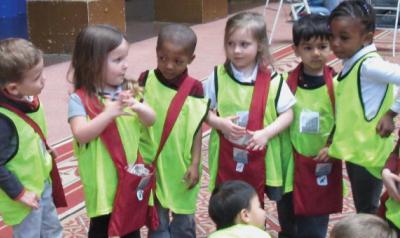
Bullying in Early Childhood

To Prevent Bullying, Focus on Early Childhood

Focusing on Families: A Two-Generation Model for Reducing Parents’ Stress and Boosting Preschoolers’ Self-Regulation and Attention

Creating Trauma-Sensitive Classrooms
To share with families.

10 Tips for Raising a Compassionate Infant-Toddler

Observation: The Key to Understanding Your Child

Understanding and Responding to Children Who Bite

The Not-So-Magic Word

Message in a Backpack™ Guiding Your Child’s Behavior
Most recent.
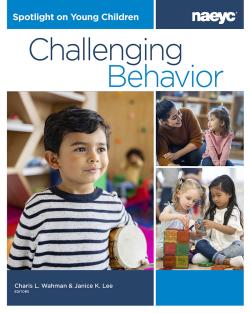
Spotlight on Young Children: Challenging Behavior
Authored by.

Functional Assessment and Positive Behavior Support: The Role of Early Learning Program Leaders and Teachers

A Three-Step Approach: Promoting Young Children’s Self-Regulation and Language During Conflict

Tearing Down Silos: A Model for Interagency Collaboration

Instead of Discipline, Use Guidance
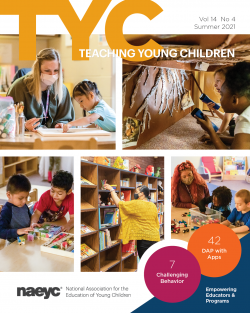
Summer 2021

A Road Forward: Five Democratic Life Skills for a Civil Society

NAEYC Publishes New Book on Addressing Challenging Behavior in Young Children

Becoming a Better Behavior Detective: Applying a Developmental and Contextual Lens on Behavior to Promote Social and Emotional Development

Rocking and Rolling—It Takes Two: The Role of Co-Regulation in Building Self-Regulation Skillsالتناغم والتآزر - يد واحدة لا تص فِّق: دور التنظيم المشترك في بناء مهارات التنظيم الذاتي عند الطفل
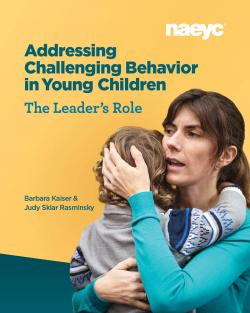
Addressing Challenging Behavior in Young Children: The Leader's Role

Message in a Backpack™ Helping Your Child through Change

Supporting Anxious Children in the Preschool Classroom

Partnering with Families Supporting Social and Emotional Development through Picture Books
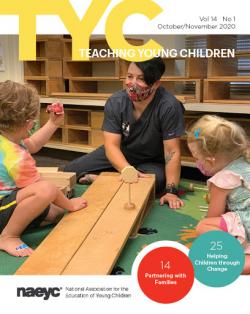
October/November 2020

التفاهم مع الأطفال الذين يمارسون سلوك العض وطريقة الاستجابة لهم Understanding and Responding to Children Who Bite

“How Can I Help You?”: Reconsidering Behavior Management

انظر واسمع وتعلم: اللطف في المعاملة Look, Listen, Learn: The Kindness Movement

Ask Hello. How to Handle Hurtful Words

Essay on Guidance for Students | Guidance Meaning and Importance
Latest Applications Open 2024:
MIT WPU UPES LPU Bennett University
Essay on Guidance means advising and supporting anyone during a certain point of their life. The word ‘guidance’ comes from the Old French verb ‘guier’. This verb means ‘to guide someone’ or ‘to lead someone’. The word guidance entered the English language within the 1530s.
Meaning of Guidance:
Guidance is different from commanding someone to try and do things or telling them exactly what they need to do. Guidance may be a more gentle way of providing information and support in order that people can choose for themselves what they need to try and do.
Get Free Counseling
" * " indicates required fields
Think of a guide taking people on a countryside walk. The guide doesn’t frogmarch people around the countryside but rather uses their expertise and knowledge of the realm to indicate them the most effective routes. People can follow the guide if they want (indeed it might be sensible to try and do so) and hear the guide’s explanations of sights that they see on the way. But, they’re doing not need to do this: they are not being forced to try to do so.
Latest Applications For Various UG & PG Courses Open 2024
- Bennett University | Admissions Open for All Courses 2024. Apply Now
- CT University ,Punjab| Admissions Open for All Courses 2024. Apply Now
- IMS Ghaziabad UC Campus | Admissions Open for All Courses 2024. Apply Now
- MIT WPU Pune | Admissions Open for All Courses 2024. Apply Now
- UPES Dehradun | Admissions Open for All Courses 2024. Apply Now
- Chandigarh University | Admissions Open for All Courses 2024. Apply Now
- GD Goenka, Delhi NCR | Admissions Open for All Courses 2024. Apply Now
- LPU 2024 | Admissions Open for All Courses 2024. Apply Now
- Amrita B.Tech 2024 | Admissions Open for All Courses 2024. Apply Now
- NICMAR Pune | Admissions Open for All Courses 2024. Apply Now
- NIIT University Jaipur | Admissions Open for All Courses 2024. Apply Now
- KIIT School of Management | Admissions Open for All Courses 2024. Apply Now
- Jaipuria School of Business Ghaziabad | Admissions Open for All Courses 2024. Apply Now
- Amity University, Kolkata | Admissions Open for All Courses 2024. Apply Now
Important of Guidance in Daily Life:
Important of Guidance in Relationships: Sometimes, unfortunately, we’ve issues with our romantic relationships. And then, fairly often, we seek the guidance of a fan or beloved. This is often a really smart thing to try and do because fairly often our loved ones can provide some much-needed support and a special perspective on our feelings. Though we should always probably be wary of loved ones who attempt to tell us what to try and do in our romantic lives, a lover can provide valued guidance for us just by taking note of our problems and supporting us as we talk them through.
Important of Guidance in Financial Matters.
Not all people have top-notch financial expertise. Soliciting guidance from an expert in financial matters may be an excellent idea if we would like to make sure that we make the foremost of our savings invest our money wisely then on. Nevertheless, we should always never allow ourselves to be pressured into creating financial decisions that we aren’t comfortable with. Guidance is there as a suggestion instead of a command to be followed whether we would like to or not!
Important of Guidance in L aw Matters.
When it involves legal matters, the guidance of a legal professional will help to make sure that we stay straight and narrow. If we are fixing a replacement company, for instance, it’s definitely worth our while to ask a legal professional for advice on complying with taxation law. this is often only one example of how seeking legal guidance will help us to form the proper decisions.
Important of Guidance in Visiting a New Place.
When we are traveling, locals can provide us with very valuable information and guidance about what to eat, where to go to, and the way to urge around. we’d get this guidance more officially through a guide, or we may within the roll within the hay informally by asking around in the area or getting into touch with friends who have lived or traveled in the area that we are visiting.
- Presidency University | Admissions Open for All Courses 2024. Apply Now
- CIMP Patna | Admissions Open for All Courses 2024. Apply Now
- JIMS Rohini, Delhi | Admissions Open for All Courses 2024. Apply Now
- IMS Ghaziabad , Ghaziabad | Admissions Open for All Courses 2024. Apply Now
- Alliance UG , Karnataka| Admissions Open for All Courses 2024. Apply Now
- KL University | Admissions Open for All Courses 2024. Apply Now
- NICMAR Hyderabad | Admissions Open for All Courses 2024. Apply Now
- Calcutta Business School | Admissions Open for All Courses 2024. Apply Now
- Jaipuria Institute of Management | Admissions Open for All Courses 2024. Apply Now
- BIMTECH , Uttar Pradesh| Admissions Open for All Courses 2024. Apply Now
- LBSIM , Delhi| Admissions Open for All Courses 2024. Apply Now
- ITM Business School , Navi Mumbai| Admissions Open for All Courses 2024. Apply Now
- KIIT School of Management, BBA , Odisha | Admissions Open for All Courses 2024. Apply Now
Important of Guidance in the Workplace.
Workplaces tend to incorporate both very experienced staff members and other people who are just starting out. New employees can get numerous benefits from posing for the assistance and guidance of individuals who are performing at a corporation for an extended time. Whether it’s something as simple as showing them where the coffee machine is or how the IT system works, or something that involves some more sustained mentoring throughout their career, older employees can provide valuable guidance to newcomers.
Important of Guidance in Growing up.
As we are growing up, our beliefs and personalities are being formed. And, one among the key ways during which this happens is in response to guidance from our parents. A key role of oldsters is to give moral guidance to their kids, teaching them the difference between right and wrong and always encouraging them to try and do the proper thing. The guidance that we get from our parents can shape our personalities right into adulthood and may really stick with us for all times.
Important of Guidance in Helping others.
Throughout our lives, we’ll have many opportunities to help others with guidance. This is often an excellent thanks to helping people, and also to offer something back to the planet in recognition for all of the guidance that we’ve received ourselves. it’s definitely worth brooding about what our areas of skill and expertise are in order that we all know where best to offer guidance. there’s no point in offering guidance to someone on engineering if we aren’t trained during this subject, for example! But, whether we are an honest listener when friends have relationship issues, or whether we are great at helping people to form the foremost of their finances, we all have some guidance to offer to spread some light within the world.
Important of Guidance in Sharing expertise.
When we accept another person’s guidance, we get to create the use of their expertise and life experience. Having this extra information are often very useful to us once we got to make decisions about our life.
Important of Guidance in Therapy.
One sort of guidance is therapeutic guidance. For instance, if someone is feeling stressed or features a psychological state condition, they will visit a counselor to invite their guidance. Being supported by a counselor to know our own situation and what options we’ve to form it better are some things very powerful. The counselor’s guidance is so important for enabling us to realize a better mental state.
ALSO READ: ESSAY ON IMPORTANCE OF RESEARCH FOR STUDENTS
Important of Guidance in Education .
In the educational context, guidance is often absolutely crucial to helping us to find out. Though they are doing teach us facts and figures, teachers also guide us towards becoming researchers in our title. A decent teacher is going to be ready to provide guidance about the way to follow our own interests and the way to get new facts for ourselves.
Conclusion:
Offering guidance may be a key example of the way during which individuals help one another out on every day. Remember, guidance is all about preserving the opposite person’s autonomy: we give them guidance in order that they will make a well-informed decision that’s best both for themselves and for those around them. What areas of life might you like guidance in right now? Where might you be ready to find the guidance that you simply need?
- Essay On Healthy Lifestyle In English For Students & Teachers
- Essay On Hindi Diwas In English For Students & Teachers
You May Also Like
Chemical weathering essay for students & children’s in english, essay on discipline in english for students & teachers/discipline essay, essay on patriotism, short paragraph on importance of patriotism in the country.
- Success Stories
- AI Scholar Program
- Startup Internship Program
- Research Scholar Program
- GOALS Academic Support Program
- Test Prep Program
- Passion Project Program
- For Families
- For Schools
- For Employers
- Partnerships
- Content Guides
- News And Awards
- College Admissions
- Events and Webinars
- Applications
12 Tips for Finding the Best College Essay Coach (2024)
Sophia Minhas
College admissions creative designer and lead admissions expert, table of contents, 1. check the college essay coach’s credentials and experience, 2. review their track record, 3. assess their coaching style, 4. request a sample session from the college essay coach, 5. discuss their availability, 6. inquire about their approach to essay writing, 7. consider their familiarity with different colleges, 8. assess their ability to provide constructive feedback, 9. look for personalized attention, 10. check their ethical standards, 11. review their communication skills, 12. compare costs and services:.
Stay up-to-date on the latest research and college admissions trends with our blog team.

Writing essays can often feel like an uphill battle. From the initial brainstorming session to crafting a piece that is both cohesive and compelling, students frequently face difficulties in gaining confidence with long-form writing . This challenge intensifies when the essays serve as a key component in the college admissions process, offering admissions officers a window into the student’s personality and achievements — it can feel like a lot of pressure! Many universities have adopted and still push test-optional policies during their admissions process, so personal statements have become increasingly important in the university’s decision-making process. So, how can you effectively manage these anxieties and successfully create impactful essays?
With increasing competition and the ever-growing importance of a stellar college essay, many families turn to college essay coaches for guidance and support. However, not all coaches are created equal and are a right fit for your student! In this blog post, we’ll explore 12 essential tips for finding the best college essay coach in 2024, helping you and your child find the right expertise for their goals and personality.
Before we begin, here’s an interesting video on why tackling essays alone can be challenging for any student as well as some of the ways to begin thinking about the essay writing and editing process!
When searching for a college essay coach to support your student through their journey, it’s important to explore their credentials and experience in writing and editing pieces, specifically those related to college admissions. College admissions essays take a lot of care and patience to write and require the same when editing them, so it’s important to find a college easy coach who will spend the time and have the empathy and experience needed to help support students through their drafting and editing stages.
Look for coaches with a background in writing, education, or college admissions counseling. A strong foundation in these areas will help indicate that the coach has the expertise to provide valuable guidance throughout the essay-writing process! Additionally, see if the coach can provide examples of their own writing, as you can get a feel for their caliber and perspective/tone of voice.
When deciding upon a college essay coach to work with your student, it doesn’t hurt to ask about their experiences helping students through the admissions essay process! Ask potential coaches for examples of past success stories of students they helped. You can ask questions like:
- Where did your students end up?
- What was the process you followed with them to get their essays to their final products?
- What approaches did you use throughout the writing process?
- How do you help students find the topics they can write strongly about?
While these questions may seem rudimentary, having some questions to begin the search can help you find a coach that fits your student’s personality and make the process much easier. Additionally, most universities ask different questions to students for their applications, so finding a coach that fits your student’s college admissions goals will be a much better approach to the process and help your family holistically move through it easily.
Every student is unique, and so is every coach! Coaches have their own teaching, writing, and essay approaches, so it’s important to consider your child’s learning style and preferences when choosing a coach to work with. Some students may thrive with intensive one-on-one guidance, while others prefer more independent work with occasional check-ins. Therefore, it’s important to find a coach who can support your student in the way that best suits them!
Understanding how coaches work through the essay development process is also crucial. Discuss with them how they edit admissions essays and writing pieces. What do they look for? When crafting a draft or building their topic lists, what are some things to consider? What should students look out for when crafting their essays during preparation? These questions can guide the conversation and help you and your students understand what to expect from working with them.
Here is a great example of how an essay coach will edit a piece:
Requesting a sample session before committing to a coach is a great idea. This initial trial will allow you to evaluate the coach’s methods and compatibility with your student’s needs and see if they are a good personality fit! During your first conversations with the coach, ask if they offer a sample session and arrange for your student to participate. It’s essential that your student attends this session, as they will be the ones benefiting from the service most!
During the session, pay attention to how the coach helps your student develop ideas and how the coach carries the initial conversation through. Be sure to ask any questions you might have as they work with your student, and see how they provide feedback and whether they effectively communicate strategies for improving the essay.
Undoubtedly, the high school years are an incredibly busy time for most families. Between juggling sports, academics, extracurriculars, and more, schedules for both students and parents can fill up fast. With this in mind, it’s important to prioritize discussing availability in the initial conversations!
Make sure that the coach’s availability aligns with your student’s schedule. Also, discuss deadlines and expectations in advance to avoid scheduling conflicts later. Having a coach who is easy to reach and quick to respond throughout this highly busy and stressful time will offer valuable support during the application process.

Another critical aspect of finding the right college essay coach for your student is understanding their approach to essay writing. It is essential to choose a coach who prioritizes helping students develop their unique voice and narrative rather than merely editing their work. A good coach will guide your student through a comprehensive process that includes brainstorming, outlining, and revising, helping to ensure essays are authentic and compelling, reflecting the student’s personality and experiences.
During your search, learn more about the coach’s methodology and how they plan to support your student in crafting their story. The ideal coach should encourage creative thinking and help students articulate and effectively their ideas, focusing on teaching students how to organize their thoughts, construct a strong narrative, and refine their writing through multiple drafts. This process improves the quality of the essays and empowers students with valuable writing skills that will benefit them beyond the college application process.
Just like some tutors have skills in certain fields, it’s important to remember that essay coaches do, too! Every school has a different set of questions they ask students to answer in their application, so the coach you find must be able to help support the writing process for particular universities your student is applying to. Some coaches specialize in advising students on specific types of colleges, such as liberal arts colleges, Ivy League institutions, or STEM-focused schools, so their lens of guidance and thought process will likely follow suit.
When finding the best-fit college essay coach, consider your child’s interests and aspirations and the types of colleges they are targeting. Suppose your student has experience within STEM areas and wishes to apply to an engineering major at their desired university, for instance. In that case, it’s important to ensure the essay coach can help students utilize their experience within that field to their advantage. A coach who understands the nuances of different admissions processes for schools of all different types can help provide tailored guidance that aligns with your child’s goals.
Feedback is an incredibly important part of the essay drafting process. Implementing feedback into your writing can help you see and understand perspectives you might not have originally thought about, help develop a cleaner, more concise, and more persuasive tone, and help get you back on the right track. With this in mind, finding a coach who will provide constructive and effective feedback to support your student throughout the writing process is important.
Feedback looks different for each individual coach, but effective feedback in essay writing contains a few basic things: positivity, questions/clarification from a higher level to a lower level, and a critique of the writing, not the writer themselves. Additionally, pay attention to the tone of the critique and whether it follows the golden rule of effective feedback—it should be considerate and not bash or negate the student’s work.

Students are unique, and so is their writing! Each student has their own perspective, voice, experiences, interests, and aspirations, and their college essays will be the lens admissions officers have into the student who is applying. Knowing this, choose an essay coach that provides a personalized approach throughout each step of the process and gives your student the best chance at developing a story true to themselves.
From mind mapping and brainstorming to final edits, your student’s essay coach should focus on tailoring their guidance to your student’s goals and writing style from the get-go. A coach who takes the time to get to know your child’s background and ambitions will provide more effective support and, in turn, help your student write essays that will be sure to wow the admissions officers!
Ethical integrity is paramount when selecting a college essay coach. Avoid coaches who act unethically in their work, such as writing essays for students or making false promises about admission outcomes. These practices undermine the student’s learning experience and can have serious consequences, including jeopardizing the student’s admission prospects and damaging their academic reputation.
When evaluating potential coaches, prioritize those who are honest, transparent, and promote ethical conduct in their coaching practice. Essay coaches should work to empower students to express their own thoughts and ideas authentically and provide guidance and support, helping students brainstorm, outline, and revise their own personal essays, not the writing of the coach.
Transparency is also important to ethical coaching. Look for coaches who are upfront about their methods, expectations, and realistic outcomes of their assistance. They should be clear about what they can and cannot do, avoiding any admission guarantees to specific colleges. Instead, they will emphasize the importance of effort, authenticity, and personal growth in the application process.
Effective feedback is essential for enhancing a student’s essay-writing skills and ensuring their writing growth. When searching for a college essay coach, prioritize those who offer specific, actionable feedback that will help students understand their strengths and identify areas for improvement within their writing.
Look for a coach who provides detailed comments and suggestions that clarify why certain changes are needed. For instance, instead of correcting a vague sentence, the coach should explain why it lacks clarity and offer strategies to make it more precise. Additionally, avoid coaches who simply rewrite or heavily edit essays without offering an explanation. While this might result in a polished essay, it doesn’t teach the student how to improve their writing skills. The goal is to develop the student’s ability to think critically about their work and make informed decisions about their revisions so they can become a better writer and thinker in the future!

Finally, when deciding on a college essay coach, it’s important to consider the cost of coaching services and what is included in the offered package! While price shouldn’t be the sole determining factor, ensuring that the coaching services align with your budget and expectations is essential, especially considering the applications’ costs. Be sure to compare the costs and services different coaches offer to find the best value for your investment and find a coach that provides the best service quality without breaking the bank!
Finding the best college essay coach for your student requires careful consideration of their practice, including their credentials, coaching style, expertise, and ethical standards. Use these 12 tips to help select a coach who provides personalized guidance, supports your child’s individual needs and aspirations, and helps them craft compelling essays that stand out to admissions officers!
Looking for extra essay support? Empowerly’s here to help! Our team of expert essay editors and counselors is here to support your student during the stresses of the college admissions process. They are available to provide edits, help brainstorm, and empower your student to create essays that will not only wow the admissions officers, but show students all they have achieved on their own. Schedule a free consultation to get started with our team today!
Share this article:
College apps can be overwhelming, but you don’t have to do it alone. empowerly college counseling is in it with you., related articles.

Filling Out the Common Application for College Admissions
How to Approach College Admissions Essays

4 Tips for College Admissions Essays from a Stanford Grad
Advertisement
Supported by
There’s a New Covid Variant. What Will That Mean for Spring and Summer?
Experts are closely watching KP.2, now the leading variant.
- Share full article

By Dani Blum
For most of this year, the JN.1 variant of the coronavirus accounted for an overwhelming majority of Covid cases . But now, an offshoot variant called KP.2 is taking off. The variant, which made up just one percent of cases in the United States in mid-March, now makes up over a quarter.
KP.2 belongs to a subset of Covid variants that scientists have cheekily nicknamed “FLiRT,” drawn from the letters in the names of their mutations. They are descendants of JN.1, and KP.2 is “very, very close” to JN.1, said Dr. David Ho, a virologist at Columbia University. But Dr. Ho has conducted early lab tests in cells that suggest that slight differences in KP.2’s spike protein might make it better at evading our immune defenses and slightly more infectious than JN.1.
While cases currently don’t appear to be on the rise, researchers and physicians are closely watching whether the variant will drive a summer surge.
“I don’t think anybody’s expecting things to change abruptly, necessarily,” said Dr. Marc Sala, co-director of the Northwestern Medicine Comprehensive Covid-19 Center in Chicago. But KP.2 will most likely “be our new norm,’” he said. Here’s what to know.
The current spread of Covid
Experts said it would take several weeks to see whether KP.2 might lead to a rise in Covid cases, and noted that we have only a limited understanding of how the virus is spreading. Since the public health emergency ended , there is less robust data available on cases, and doctors said fewer people were using Covid tests.
But what we do know is reassuring: Despite the shift in variants, data from the C.D.C. suggests there are only “minimal ” levels of the virus circulating in wastewater nationally, and emergency department visits and hospitalizations fell between early March and late April.
“I don’t want to say that we already know everything about KP.2,” said Dr. Ziyad Al-Aly, the chief of research and development at the Veterans Affairs St. Louis Healthcare System. “But at this time, I’m not seeing any major indications of anything ominous.”
Protection from vaccines and past infections
Experts said that even if you had JN.1, you may still get reinfected with KP.2 — particularly if it’s been several months or longer since your last bout of Covid.
KP.2 could infect even people who got the most updated vaccine, Dr. Ho said, since that shot targets XBB.1.5, a variant that is notably different from JN.1 and its descendants. An early version of a paper released in April by researchers in Japan suggested that KP.2 might be more adept than JN.1 at infecting people who received the most recent Covid vaccine. (The research has not yet been peer-reviewed or published.) A spokesperson for the C.D.C. said the agency was continuing to monitor how vaccines perform against KP.2.
Still, the shot does provide some protection, especially against severe disease, doctors said, as do previous infections. At this point, there isn’t reason to believe that KP.2 would cause more severe illness than other strains, the C.D.C. spokesperson said. But people who are 65 and older, pregnant or immunocompromised remain at higher risk of serious complications from Covid.
Those groups, in particular, may want to get the updated vaccine if they haven’t yet, said Dr. Peter Chin-Hong, an infectious disease specialist at the University of California, San Francisco. The C.D.C. has recommended t hat people 65 and older who already received one dose of the updated vaccine get an additional shot at least four months later.
“Even though it’s the lowest level of deaths and hospitalizations we’ve seen, I’m still taking care of sick people with Covid,” he said. “And they all have one unifying theme, which is that they’re older and they didn’t get the latest shot.”
The latest on symptoms and long Covid
Doctors said that the symptoms of both KP.2 and JN.1 — which now makes up around 16 percent of cases — are most likely similar to those seen with other variants . These include sore throat, runny nose, coughing, head and body aches, fever, congestion, fatigue and in severe cases, shortness of breath. Fewer people lose their sense of taste and smell now than did at the start of the pandemic, but some people will still experience those symptoms.
Dr. Chin-Hong said that patients were often surprised that diarrhea, nausea and vomiting could be Covid symptoms as well, and that they sometimes confused those issues as signs that they had norovirus .
For many people who’ve already had Covid, a reinfection is often as mild or milder than their first case. While new cases of long Covid are less common now than they were at the start of the pandemic, repeat infections do raise the risk of developing long Covid, said Fikadu Tafesse, a virologist at Oregon Health & Science University. But researchers are still trying to determine by how much — one of many issues scientists are trying to untangle as the pandemic continues to evolve.
“That’s the nature of the virus,” Dr. Tafesse said. “It keeps mutating.”
Dani Blum is a health reporter for The Times. More about Dani Blum

IMAGES
VIDEO
COMMENTS
Abstract. The purpose of the study was to examine the role of guidance and counseling in enhancing student discipline in secondary schools in Koibatek district. The study was guided by Alfred Adler (1998) theory of personality, and humanistic theory of Albert Bandura (1995) social learning model. The study adopted a descriptive survey research ...
Introduction. Counselling generally refers to the provision of assistance or guidance that eventually helps solve personal, social or mental problems. A professional individual typically administers it. It usually takes a number of forms, including individual counselling, group counselling, and couples counselling.
essays—not that kind of writing. It's a how-to manual for high-quality arguments. There are four main components: - Chapters: Each provides guidance, not rules, because there are always exceptions to the rules in academic writing. - Practicums: These boxes give step-by-step instructions to help you build ideas and write papers.
Essay On Career Guidance. 1465 Words6 Pages. Despite the wide range of careers for students to choose from, guidance and counselling is still needed to help them choose effectively. In many developed countries, career guidance and counselling is well planned in the entire school system. There are career counselling centers with adequate ...
A PDF providing further guidance on writing science essays for tutorials is available to download.. Short videos to support your essay writing skills. There are many other resources at Oxford that can help support your essay writing skills and if you are short on time, the Oxford Study Skills Centre has produced a number of short (2-minute) videos covering different aspects of essay writing ...
Here are some things that admissions officers look for in a personal essay for college. 1. Open Strong. Knowing how to start a college essay can create a strong opening paragraph that immediately captures the reader's interest. You want to make the admissions officer reading your essay curious about what you say next. 2. Show You Can Write.
Essay writing process. The writing process of preparation, writing, and revisions applies to every essay or paper, but the time and effort spent on each stage depends on the type of essay.. For example, if you've been assigned a five-paragraph expository essay for a high school class, you'll probably spend the most time on the writing stage; for a college-level argumentative essay, on the ...
Revised on July 23, 2023. An essay outline is a way of planning the structure of your essay before you start writing. It involves writing quick summary sentences or phrases for every point you will cover in each paragraph, giving you a picture of how your argument will unfold. You'll sometimes be asked to submit an essay outline as a separate ...
Tips for Reading an Assignment Prompt. Asking Analytical Questions. Thesis. Introductions. What Do Introductions Across the Disciplines Have in Common? Anatomy of a Body Paragraph. Transitions. Tips for Organizing Your Essay. Counterargument.
Don't summarize. Avoid explicitly stating the point of your essay. It's far less effective when you spell it out for someone. Delete every single "That's when I realized," "I learned," and "The most important lesson was...". It's unnecessary, unconvincing, and takes the reader out of the moment.
Essay On Guidance And Guidance. There is really a need to look into the welfare of pupils so that they could achieve to the fullest. It is a fact that when a pupil has emotional or personal problems, he cannot make use of his potentialities. Guidance is a process of helping the individual to understand himself and his world so he can utilize ...
Effects of Quality Counseling in Schools. One of the biggest benefits of guidance and counseling in schools from a well-trained and effective school counselor is in the way they may be able to help prepare students for academic, career, and social challenges through relating their academic success with the potential success of their future lives.
Essay On Guidance And Counseling. 865 Words4 Pages. We live in a world where changes occur daily, and at times it leaves us confused. Most of the changes are due to technological advancements. Traditional means and ways of dealing with life are slowly eroding away. Guidance and counseling is all about bringing changes in students which may ...
An essay consists of three basic parts: Introduction. Body. Conclusion. The essay itself usually has no section headings. Only the title page, author declaration and reference list are written as headings, along with, for example, appendices. Check any task instructions, and your course or unit handbook, for further details.
College Essay Guy believes that every student should have access to the tools and guidance necessary to create the best application possible. That's why we're a one-for-one company, which means that for every student who pays for support, we provide free support to a low-income student. Learn more.
1.3.1 Objectives of Guidance: To help in the total development of the student. To enable students to make proper choices at various stages of their educational career. To help students choose, prepare for, enter upon and progress in a career. To help the students in vocational development.
Functional Assessment and Positive Behavior Support: The Role of Early Learning Program Leaders and Teachers. Functional analysis is a tool that allows educators to figure out the purpose or function of challenging behavior as well as the events that trigger and maintain it. Authored by: Barbara Kaiser, Judy Sklar Rasminsky. Members Only. Article.
Latest Applications Open 2024: MIT WPU. UPES. LPU. Bennett University. Essay on Guidance means advising and supporting anyone during a certain point of their life. The word 'guidance' comes from the Old French verb 'guier'. This verb means 'to guide someone' or 'to lead someone'. The word guidance entered the English language ...
2112 Words. 9 Pages. Open Document. Abstract The total development of a child can only take place in environment conduction for teaching and learning. The basic purpose of a guidance and counselling programme is to ensure the physical, emotional, social, and educational development of learners. Since primary school students spend most of the ...
Essay about The Guidance Counselor. According to the U. S. Department of Labor's Occupational Outlook Handbook, Counselors are defined as persons who "assist people with personal, family, educational, mental health and career decisions and problems. Their duties depend on the individuals they serve and the settings in which they work" (169).
Guidance And Counselling Reflection Paper. 777 Words4 Pages. In this semester, I have been exposed to the subject of Introduction to Guidance and Counselling which is a new field of study for me. After I have received this lesson, I can relate my experiences with what I have learned. Not only that, I also have different perspective towards ...
With increasing competition and the ever-growing importance of a stellar college essay, many families turn to college essay coaches for guidance and support. However, not all coaches are created equal and are a right fit for your student! In this blog post, we'll explore 12 essential tips for finding the best college essay coach in 2024 ...
Guidance essay. Guidance is the process of helping individuals discover and develop their educational, vocational, and psychological potentialities and thereby to achieve an optimal level of personal happiness and social usefulness, Gladding (2000). The concept of Counselling is essentially democratic in that the assumptions underlying its ...
Doctors said that the symptoms of both KP.2 and JN.1 — which now makes up around 16 percent of cases — are most likely similar to those seen with other variants. These include sore throat ...
In recent years, the emergence of generative models has spurred development of human motion generation, among which the generation of stylized human motion has consistently been a focal point of research. The conventional approach for stylized human motion generation involves transferring the style from given style examples to new motions. Despite decades of research in human motion style ...